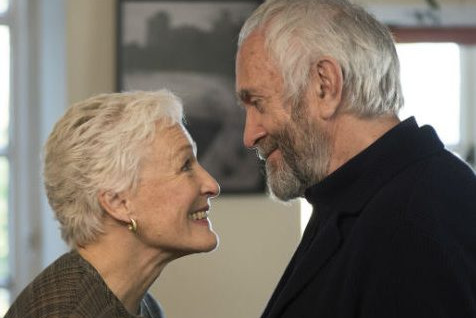
GLENN CLOSE IN ‘THE WIFE’: A MASTER CLASS IN FILM ACTING
19th Feb, 2019
GLENN CLOSE IN ‘THE WIFE’: A MASTER CLASS IN FILM ACTING
19th Feb, 2019
Variety by Tim Gray
The BAFTA Awards are Feb. 10, with Oscars two weeks later. All the lead actress nominees are terrific, but Glenn Close creates something unique because it’s so subtle. What she does is harder than it looks.
In Sony Classics’ “The Wife,” Close has the least showy role of the contenders, which is usually an awards disadvantage. She doesn’t have any “big scenes,” there’s no hysteria, no scenery-chewing, no calculated “This’ll get ’em!” moments. Instead, she offers a lesson in film acting.
Close told Variety that the challenge and “thrill” were in creating a woman who has so much going on internally; the character, Joan Castleman, has spent her life trying to fade into the background of her writer-husband, but both hit a crisis when he’s awarded a Nobel Prize for literature.
“There were years of her reveling in the work, but slowly seeing her husband become delusional about his creative process,” says Close. “And the growing rage that she has suppressed, suppressed, suppressed. For a long time, she thought ‘It’s worth it, to be able to do what I do’ — until it isn’t any more.”
Joan tells a reporter, “Please don’t paint me as the victim. I’m much more interesting than that.”
The performance is remarkable for what Close does — and what she doesn’t do.
Jonathan Pryce, who also offers a multi-layered performance as the insecure-narcissist husband, adds: “Joan doesn’t set the house on fire, doesn’t destroy everything, even though that’s what she wants to do. She’s spent her whole life holding those feelings in, and that’s what Glenn does so wonderfully, all those pent-up emotions.
“When I saw the film, I noticed that Bjorn [Runge, the director] and the editor very often stay with the person who isn’t speaking, and a lot of the time that was Glenn. That’s what’s wonderful about her performance: She shows everything that’s unsaid between them.”
Close adds, “It was incredibly rewarding to sit with the audience in Toronto at its world premiere and to feel the response,” she says. “It’s a quiet, intimate story, and the audience was getting every nuance. I realized, we had created something bigger than we’d thought.”
She said it was sometimes uncomfortable to film certain scenes, because of the complex emotions, and because it was a constant reminder of generations of women who sublimated their dreams. “I think about my mom, what she could have created, that would have given her such fulfillment,” she says. Working on the film also reminded her of her grandmother, who had unspoken wishes to be an actress.
Close represents the sole Oscar and BAFTA nomination for the film, but she frequently deflects conversation to others, including Pryce and her daughter Annie Starke, who plays Joan at a younger age. “Those flashbacks are so important and I’m so proud of Annie and what she did to establish Joan,” she says.She also has high praise for everyone behind the camera, such as DP Ulf Brantas, editor Lena Dahlberg, scripter Jane Anderson, and novelist Meg Wolitzer, and especially director Runge, saying, “I revel in collaboration, and I had great collaborators.”
This is Close’s seventh Oscar nomination, with no wins so far. But if she is victorious at BAFTA and the Oscars, this wouldn’t be a gift, or a make-good. She has been creating indelible movie characters for decades, including in “Fatal Attraction,” “Dangerous Liaisons,” “Albert Nobbs,” and Cruella de Vil in “101 Dalmatians.”
On TV, memorable work includes Nellie Forbush in “South Pacific,” Patty Hewes in “Damages,” and Margarethe Cammermeyer in “Serving in Silence,” plus on-stage performances in “Sunset Blvd.,” “The Real Thing,” “Death and the Maiden,” and “A Delicate Balance.” She’s always done interesting projects, has always been good and always a pro, respected in the industry.
But those are not the reasons to vote for her. Close’s work in “The Wife” is the reason to vote for her.
